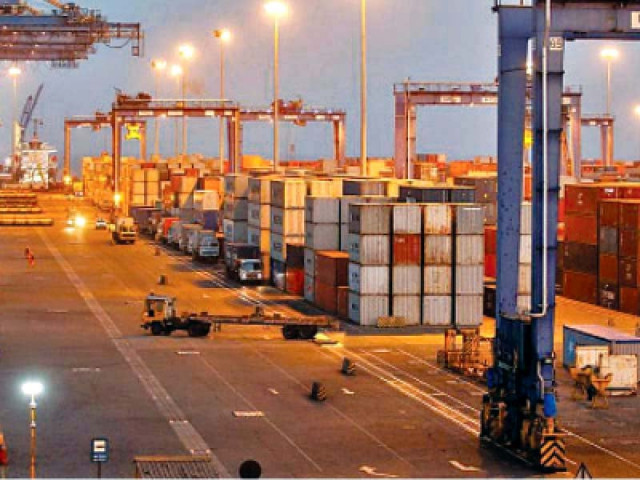Diversification of exports is key for Pakistan
Textile industry is a primary driver of export growth, but it also consumes a significant portion of subsidies

Pakistan’s foreign exchange reserves are in dire straits. As of January 6, 2023, the State Bank of Pakistan (SBP) reported having a mere $4.3 billion on hand, barely enough to cover three weeks of imports. This is a significant decline from the $16.6 billion the SBP had in January last year.
While the central bank has taken administrative steps to prevent the outflow of dollars, it is due to such measures that the acquisition of essential raw material, machinery and equipment from abroad has become difficult for many businesses – with many industries reporting plant closures and layoffs.
It is not possible to boost the country’s foreign exchange reserves without increasing debt in the short-term. On paper, an increase in export proceeds and remittances can lift the reserves, but in reality, these key sources of forex inflows have been showing alarming trends. On a year-on-year basis, both exports and remittances have fallen in each of the last three months through November, according to the SBP data. However, if policymakers could devise a carefully crafted strategy that aims to expand exports through diversification, then that might offer a glimmer of hope.
The focus should be on industries that require favourable policy measures and minimal financial support in the form of direct subsidies. In this connection, all key stakeholders, including the industry participants, the central bank, and the bureaucracy, should be taken on board and this export diversification strategy must be promptly implemented.
Diversification is the key here. Pakistan has long grappled with current account deficits, in part due to excessive reliance on the textile industry as a primary driver of export growth. This industry also consumes a significant portion of subsidies, further exacerbating the issue.
Despite the limited fiscal space available with the government in the current fiscal year, the textile industry has successfully obtained power subsidies totalling Rs100 billion, all without the burden of meeting any predetermined growth targets. Although, this support is meant for five export-oriented sectors, the majority of the funds will likely go to the textile players. While the government should work on strengthening the textile industry, which plays a vital role in the economy, it is also necessary to explore other sectors that could boost exports.
The IT sector is one area that offers immense growth potential. The sale of telecommunication, computer, and information services to foreign countries already makes the largest contribution to Pakistan’s services exports, SBP data shows.
The IT and IT-enabled services exports have seen phenomenal growth, rising from just over $800 million in FY-2013 to more than $2.6 billion in FY-2022. This 225% gain easily overshadows the growth reported by other well-established export-oriented industries in the same time frame. At this rate, IT exports could reach $8.5 billion within the next ten years. With the government’s support, however, this target can be achieved sooner.
Efforts should be made to increase the supply of skilled workers by running skill development programmes, perhaps in collaboration with the private sector. Favourable policies should be enacted that encourage the development of call centres, software houses, and IT consultancy businesses.
To attract foreign direct investment (FDI) in the IT sector, the central bank must remove the barriers that hinder the mobility of capital and address concerns that are frequently raised by startups.
The oil refining industry is also an area that can greatly improve Pakistan’s foreign exchange reserves. This import-substitution industry produces fuels like petrol and diesel, reducing the need to import these energy products. In November alone, Pakistan spent $708 million on importing these products, PBS data shows, despite low demand. To lower the import bill, refineries must be enabled to run at maximum capacity.
Several issues, however, such as weak demand for furnace oil and Letters of Credit (LCs) restrictions, have caused low utilisation rates in the oil refining industry at around 60%. At 100% utilisation, refineries could meet most of Pakistan’s fuel needs, including all of the diesel demand. This is important, considering the high cost of diesel. Producing all diesel domestically could save over $900 million in foreign exchange a year. Policymakers should, therefore, develop a plan to consistently maintain healthy refinery utilisation rates of above 90%.
Moreover, the oil refining industry can further improve Pakistan’s foreign exchange reserves by exporting fuels, in addition to meeting domestic demand. To do this, the government should sit together with the industry stakeholders to develop a strategy that allows them to expand their refining capacities to a point where they begin to produce surplus fuels for exports. For this, an overhaul of regulations and policies for the refining industry, as well as a strong political will, may be required.
Pakistan’s nascent mobile manufacturing is another industry that has demonstrated significant potential, as evidenced by the recent export of 120,000 phones. The local industry produces mid-tier phones that enjoy strong demand in emerging markets. It is possible to further expand exports by removing restrictions on procuring raw materials from abroad.
It would be advisable for the government to collaborate with the central bank to remove any obstacles that may be hindering the growth of phone exports.
If Pakistan wants to boost its foreign exchange reserves, it must think outside the textile box and consider other industries. By focusing on businesses that offer a lot of promise, but do not require extensive financial assistance, Pakistan can boost foreign exchange reserves and address current account deficits, without wasting taxpayers’ money on subsidies.
The writer is a corporate consultant who writes on subjects of business and economy
Published in The Express Tribune, January 16th, 2023.
Like Business on Facebook, follow @TribuneBiz on Twitter to stay informed and join in the conversation.


















COMMENTS
Comments are moderated and generally will be posted if they are on-topic and not abusive.
For more information, please see our Comments FAQ